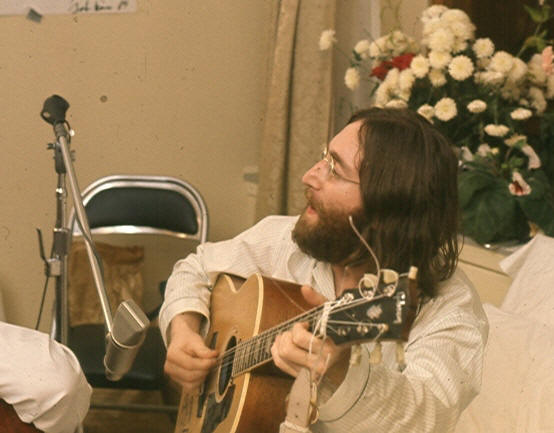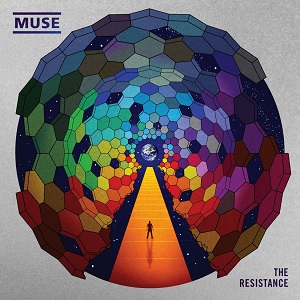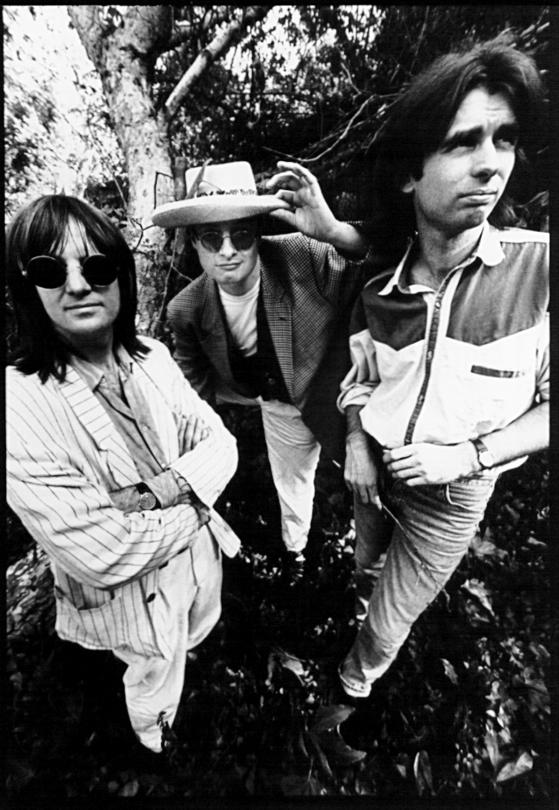The writer G.K Chesterton once commented that the saddest moment for the atheist is when he is thankful but has no one to thank. Yet in a very odd way their desire to "thank" in itself is a sign of the existence of God. In other words, is it really possible for a man to desire to do something which is utterly impossible? Can a man desire a thing (or even dream about something) that is beyond the realm of all possibility? Does this cosmic orphan (who is man) long for a Father which, as it turns out, does not in truth exist? And if there is a God, then why is there so much evil in the world? These are some of the interesting questions I will explore as we look at songs which possess atheistic themes. One thing is certain, the individuals highlighted in this survey certainly possess strong opinions about "Nothing":
6. What If God Was One Of Us - Joan Osbourne
As with most of the songs on the list, it is not atheistic per se (after all, a song about nothingness is not very enticing, if such a thing is even possible). What you have here instead is a rather populist push against His general way of doing things (or not doing things); "What if God was one of us? Just a slob like one of us? Just a stranger on the bus trying to make his way home." Has anyone told Joan about the Incarnation, or the fact that Jesus was indeed lower than any "slob on the bus", seeing as he began his life homeless? Nevertheless, some may counter that Joan is simply asking important questions, and not intending to be sarcastic. I cannot read her mind on these matters, but I can read her lyrics (as well as her superior preening in the video); "Yeah, yeah, God is good. Yeah, yeah, God is great!" This might make me the cynical one, but the mocking tone that she uses for these phrases would seem to suggest to me that she means it ironically. Probably the silliest and most awkward line in the song is when she tries to weave the Church into the discussion; "Nobodies callin' on the phone, except for the pope maybe in Rome." I am no grammar expert, but I am pretty sure that don't work. Apart from that silliness, there is a critical question that she does raise. Indeed, it may be the most interesting thing in the whole song; "If God had a face, what would it look like? And would you want to see, if seeing meant that you would have to believe, in things like heaven and in Jesus and the saints and all the prophets?" Fair enough, some people don't know if they would want to believe, particularly if believing means accepting what the Church teaches. Now whether or not we think this a good thing, there is a real question here. What is being described is an individual looking over the great divide between belief, and not so much atheism, but rather the deeper question of whether or not one desires to know the answers, especially if those answers are something in retrospect we would prefer not to have learned.
5. God - John Lennon
Whether Lennon intends it or not, a number of his songs reveal in a nutshell what happens to an individual when they cease to believe in something. Lennon is the poster boy for modernity in this song. Whereas "Imagine" comes at the subject from a more Buddhist/Marxist perspective (an interesting combination), this song approaches the subject from a purely Cartesian perspective. In the chorus (if you can call it that), he pronounces all of the things that he doesn't believe in; from the Beatles, to Kennedy, to Jesus. He then concludes by declaring that the only thing he does believes in is "me". And then as if recognizing just how utterly selfish and solipsistic this sounds, he adds, "Me and Yoko". In the beginning of the song, he similarly highlights this Cartesian notion by declaring "God is a concept by which we measure our pain." Once again, according to Mr. Lennon really the only thing that exists are concepts like God- that incidentally have no reality- and concepts like John and Yoko, which apparently do. Besides a genuine sense of skepticism at everything that he had apparently once believed in, there is also a very palpable sense of anger and bitterness in his voice. This supposed nothing feels a lot like something. Indeed, he seems more passionate about the nothing than the something. It reminds me a little of a child who in the midst of a fight with his parents either holds his breath, or averts his gaze so as not to even look in the direction of his parents. Certainly in this case no one would concede that such a child does not believe in his father or mother.
4. Thoughts Of A Dying Atheist - Muse
3. One - Metallica
This song is not technically about unbelief, but it, along with the subsequent video, do seem to provide the necessary conditions whereby some might naturally argue that there is no God. I can still recall seeing the video in my early teens and being more terrified by it than I was by most horror movies. The video uses excerpts from a movie released in the early 1970s called Johnny Got His Gun, detailing a young man who goes to war inspired by patriotism, but returns home horribly maimed. As a matter of fact, he is so maimed that he has lost his arms, legs, eyes, ears, and mouth- leaving only his functioning mind; "I can't remember anything. I can't tell if this is true or a dream. But deep down inside I feel this scream. This terrible silence stops me... Fed through the tube that sticks in me. Just like a wartime novelty. Tied to machines that make me be. Cut this life off from me... Hold my breath as I wish for death, oh God please wake me." As fatalistic as this may seem, the listener cannot help but to ask himself two important questions; a) should any man be forced to live under such conditions (he is so incapacitated he is not even capable of taking his own life) and; b) if God does exist, then how could he allow anyone to endure something like this. I cannot say whether or not what is depicted in the song and video are based on any actual events, but even if they are a little exagerrated, they do inspire a sentiment that is popular in atheistic circles; "God doesn't exist, but even if he did, he has a lot to answer for". The so called problem of evil may be an occasion for questioning the ways of God, but as popular as it is for atheists to criticize the God that they don't believe in, it is not really an effective argument against His actual existence. There are two errors of logic in this assumption; the first involves an invective against a non-existent being, and the second involves a moral argument (i.e. calling God wicked) when they themselves deny the very basis for calling anything moral in the first place. I do not deny that the song raises some serious questions about why God would permit such things, but nevertheless if we do go so far as to apply a moral term like "wicked" or "evil" to something, we must also acknowledge that we are implicitly recognizing that God exists. Indeed, our mere outrage at the apparent injustice described above in itself suggests the reality of a a higher Justice.
2. Blasphemous Rumors - Depeche Mode
For the atheist there are really only two arguments against the existence of God. The argument that science and rationality can answer everything we need to know, and the equally common idea that if by some chance there is a God we should demand an account of His actions. The problem with atheism from this standpoint is that it attempts to deny that there is a reason for existence by using reason. Indeed, they deny that there is morality by arguing that God is immoral. Thus the outrage of the atheist comes off as a little disingenuous. This Depeche Mode song is no exception; "Girl of sixteen whole life ahead of her. Slashed her wrists, bored with life. Didn't succeed, thank the Lord for small mercies." Like the former song there seems to be a question about whether the singer truly believe in God and rejects him, or is cynically rejecting certain pious sentiments that stand in the way of the reality of the situation; "Fighting back the tears, her mother reads the note again. She takes the blame it's always the same she gets on her knees to pray." As is likely apparent to most, there is an incredible amount of cynicism in these words. He thanks the Lord for "small mercies", implying in an almost sinister fashion, that God was responsible for this girl's boredom as well as keeping her alive (who incidentally would be better off dead). After that, he points to the mother who is obviously shattered by her daughters attempted suicide, and then comments dismissively that it's "always the same," and that she "gets on her knees to pray." Once again, there is mention of God and religion here, but not in order to suggest hope, but rather as a means to suggest that there is no hope, and even if there is- one should not fall for that predictable pathology of turning to God for his so called "mercies". The chorus confirms this previous suspicion; "I don't mean to start any blasphemous rumors, but I think that God has a sick sense of humor. And when I die I expect to find him laughing." The first line is the musical equivalent of beginning a sentence with the phrase "With all due respect...". We know that whatever follows can't be good... and indeed we are not disappointed. We are told in essence that all of this is part of God's wicked plan and- to make matters worse- he is actually in stitches over all of this misery. In the second verse, she appears to have "given her life to Jesus Christ" but that does nothing for her because she gets in a car accident and is put on life support. It is difficult to tell whether this song is a passive-aggressive attempt to get under God's skin, or just a clever way to dismiss the human tendency to look to God for an explanation for our pain. My guess is it's probably a little of both.
1. Dear God - XTC
Of all the songs on the list, this one is most telling in regard to where the atheist is coming from. What makes this song particularly sinister (even though we know that evil doesn't exist... right?) is the fact that the piece begins and ends with a child singing; "Dear God, hope you get the letter and I pray that you can make it better down here... But all the people made in your image see them starving on their feet, 'cause they don't get enough to eat from God. I can't believe in you..." Part of the video and the song are played in reverse, which increases the creepy factor. One expects a child's voice to embody innocence and trust, what you get from this child is neither one nor the other. At any rate, the first verse really does reveal everything that you need to know about the designs of these so called atheists. As a result of this song, and the others before it, I am led to a stunning conclusion: atheists do not in truth exist. In fact, I should write a song called "Dear Atheist... I don't believe in you". Why do I say this? In short, could there be any greater irony that someone writing a song about how they don't believe in God, while spending the entire song ranting about that God. I take that back, actually- there is a greater irony. It is the song "Ironic" by Alanis Morissette about ironic things that are not ironic at all- but I digress. It is relatively obvious that this songwriter does believe in God simply by virtue of his blatant bitterness towards Him. But more than that, there is a very subtle, but clear, statement that is made in this song; a distinction which seems to highlight the difference between not believing in the existence of a God and not "believing in him." More to the point, how can someone declare to a non-existent being- while addressing them directly- that you don't believe in them. Technically you can't, but you can if what you mean by this "I don't believe in you" has less to do with a being's existence, and everything to do with a rejection of what that being stands for. In other words, I can tell someone that I don't believe in them without denying their literal existence. As Scripture says; "Even the devil believes in God" (James 2:19), though obviously that doesn't imply that he actually "believes in him".
In a certain sense this list reveals a kind of Pascal's Wager. The question is does one follow their misery all the way down into the pit of despair, or does one fight like Job against all that seems unjust and unfair in this world. Of course, we cannot merely be complainers along the way (like Judas), we must do something to mitigate the injustice that we see around us. Interestingly enough, it is not usually those who devote their lives to service and charity that find that life has no meaning, rather it is those who tend to do nothing but complain about it.



















